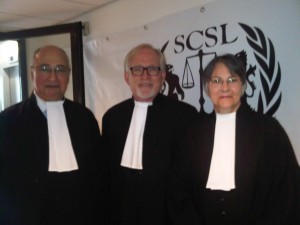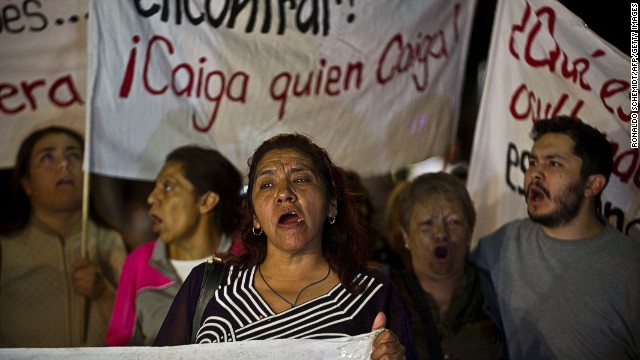By: Dan Krupinsky
Impunity Watch Reporter, Africa
THE HAGUE, Netherlands – Judges at the Special Court for Sierra Leone denied the appeal of former Liberian president Charles Taylor on Thursday, confirming his 50-year sentence for war crimes.

Taylor was found guilty of 11 counts of war crimes, including murder, rape, torture and the enslavement of child soldiers, on April 26, 2012. The atrocities in Sierra Leone were carried out by the Revolutionary United Front (RUF), a guerrilla army. Taylor supplied them with guns, training and recruits in return for diamonds, actions that the Court determined amounted to “aiding and abetting” the crimes.
In addition to aiding and abetting, Taylor also planed some of the attacks carried out by the guerrillas.
“Their primary purpose was to spread terror. Brutal violence was purposefully unleashed against civilians with the purpose of making them afraid, afraid that there would be more violence if they continued to resist,” said Presiding Judge George Gelaga King.
Taylor is the first head of state to be convicted of war crimes by an international court since the Nuremberg trials of Nazi leaders after World War Two.
“This verdict shows no person, no matter how powerful, is above the law,” said the court’s prosecutor, Brenda Hollis.
The reaction in Sierra Leone was understandably positive.
“It’s a victory for me against tyranny,” said Edward Conteh, whose hand was cut off by rebels, according to Reuters. “I’m happy Charles Taylor is behind bars for 50 years because I’m a victim of the war.”
The ruling means that Taylor, 65, will more than likely spend the rest of his life in a high security prison cell. A final decision will be made next week on where we will serve his sentence, but the UK is currently the only country that has publicly offered to accommodate him.
“The sentence is fair in the light of the totality of the crimes committed,” said Judge King. “The defense failed to demonstrate any discernible errors in the trial chamber’s sentencing.”
Taylor’s lead defense attorney, Morris Anyah, said Taylor took the verdict with great stoicism and also added that Taylor would not have been convicted if he had had a powerful ally.
“If Charles Taylor had had a friend among the permanent members of the U.N. Security Council, this case would not have had the traction it has had,” he said.
Thursday’s ruling is the final judgment at the court, which indicted 13 of the main facilitators of the violence in Sierra Leone. Two died before trial and one more remains unaccounted for and possibly dead. Another died before hearing a verdict. All of the others were tried and convicted.
For further information, please see:
Al Jazeera – Judges uphold Charles Taylor’s jail sentence – 26 September 2013
The Guardian – Charles Taylor’s 50-year sentence upheld at war crimes tribunal – 26 September 2013
Reuters – Liberia’s Charles Taylor loses appeal against war crimes conviction – 26 September 2013
The Telegraph – Charles Taylor to spend rest of life in British jail for Sierra Leone war crimes – 26 September 2013

